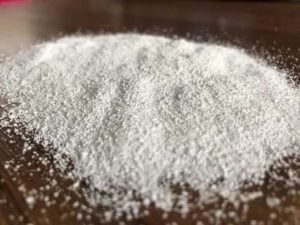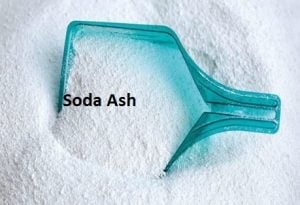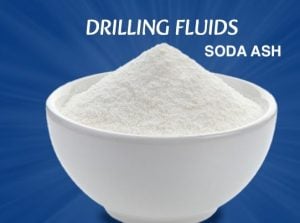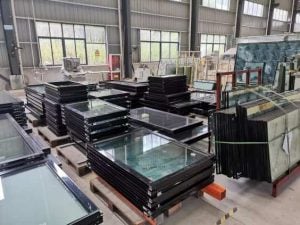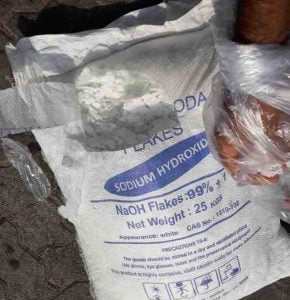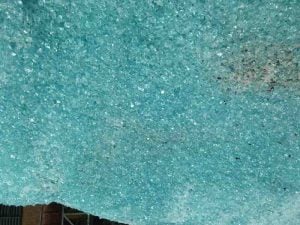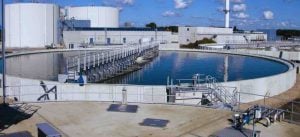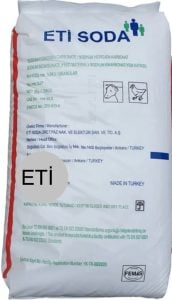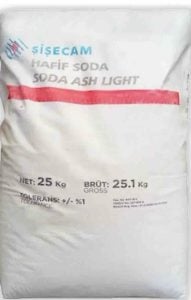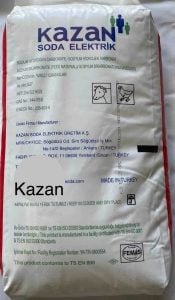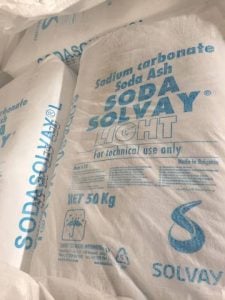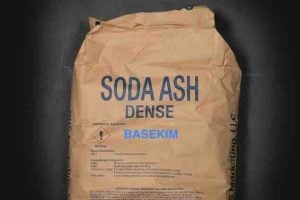
Turkey Soda ash supplier ETI soda,Ciner,Kazan,Sisecam,Solvay
- Home
- Turkey Soda ash supplier ETI soda,Ciner,Kazan,Sisecam,Solvay
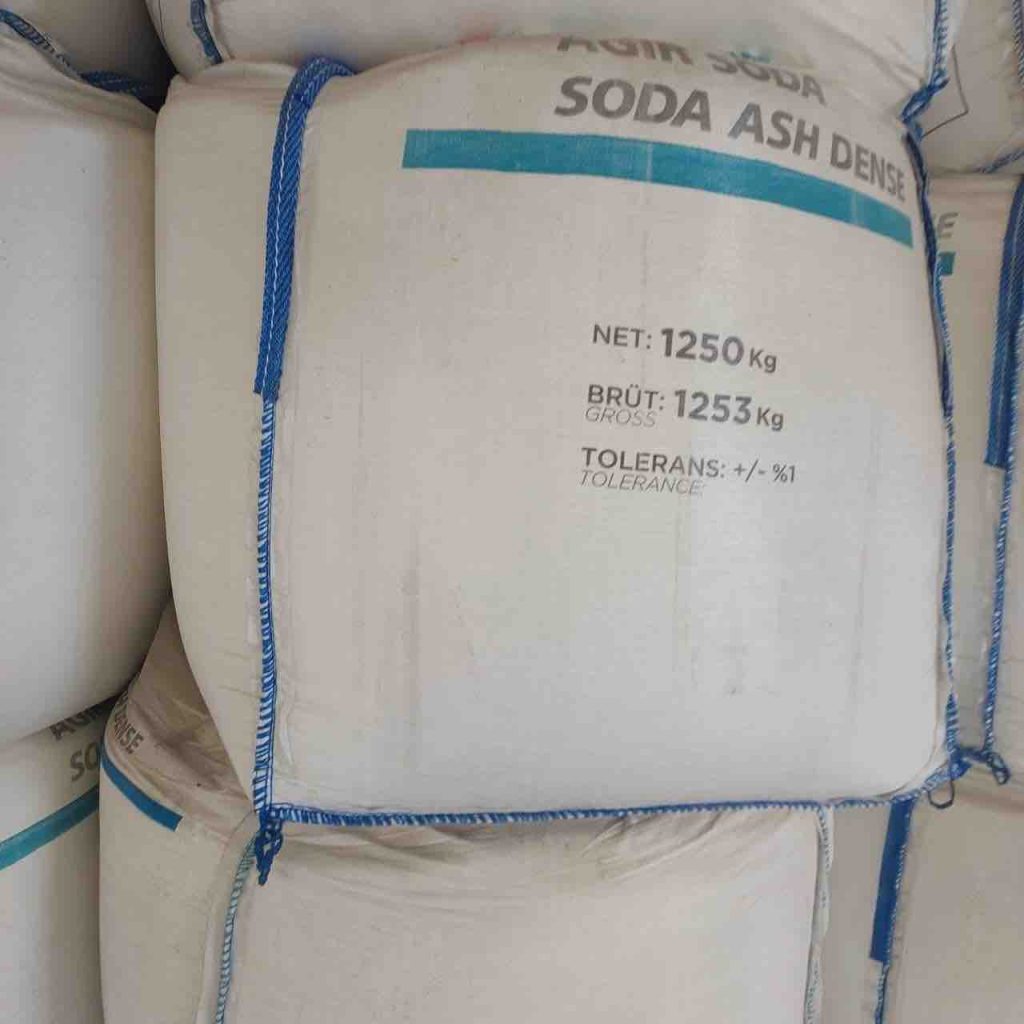
Soda ash suppliers in Turkey
Turkey Soda ash, ranked as the 10th most consumed inorganic compound globally, boasts a rich history spanning over 5,000 years. This versatile and safe compound serves as a fundamental ingredient across a myriad of industrial applications. From glass production to the manufacturing of dry powder detergents and even lithium-ion batteries, soda ash plays a pivotal role. Additionally, it holds significance in the food and pharmaceutical sectors, underscoring its widespread utility and importance in various industries.
Chemical Composition and Properties
Sodium Carbonate Formula
The chemical formula of soda ash is Na2CO3. It consists of two sodium (Na) atoms, one carbon (C) atom, and three oxygen (O) atoms.
Physical Properties
Soda ash typically appears as a fine, white powder with a granular texture. It is soluble in water and has a high pH, making it alkaline in nature.
Table of Contents
ToggleChemical Properties
One of the key chemical properties of soda ash is its ability to react with acids, producing carbon dioxide (CO2) gas. This property makes it useful in various chemical processes.
Production Process
Our Soda ash is primarily produced through two methods: synthetic and natural.
Synthetic Soda Ash Production
In the synthetic process, sodium chloride (salt), ammonia, and limestone are combined to produce soda ash through the Solvay process, named after its inventor, Ernest Solvay.
Natural Soda Ash Production
Natural soda ash, also known as trona, is mined from deposits found in certain regions. The mined trona is processed to extract soda ash.
Applications of Soda Ash
High quality Soda ash has a wide range of applications across different industries.
Drilling mud
Turkish Soda ash plays a crucial role in drilling mud formulation, particularly in the oil and gas industry. It serves as an important additive due to its alkalinity and buffering capacity, contributing to the stability and effectiveness of drilling fluids.
One of the primary functions of soda ash in drilling mud is to control pH levels. It helps maintain the desired pH balance, preventing acidic conditions that could lead to corrosion of drilling equipment and formations. By neutralizing acidic components in the drilling fluid, soda ash helps enhance the overall performance and longevity of the drilling operation.
Additionally, soda ash assists in the hydration of certain clay minerals present in the drilling mud. This hydration process helps to improve the viscosity and rheological properties of the mud, making it easier to transport drill cuttings to the surface and maintain wellbore stability.
Moreover, soda ash acts as a flocculant in drilling mud, aiding in the removal of fine particles and solids from the fluid. This helps to clarify the mud, reducing the risk of equipment clogging and improving drilling efficiency.
In summary, soda ash serves multiple functions in drilling mud, including pH control, clay hydration, and flocculation. Its inclusion in drilling fluid formulations helps optimize drilling operations by ensuring stability, efficiency, and protection of equipment and formations.
Glass Manufacturing
One of the largest consumers of soda ash is the glass industry, where it is used as a flux to lower the melting point of silica, facilitating the production of glass.
The soda ash plays a pivotal role in the manufacturing of glass, serving as a key ingredient in the glassmaking process. Its importance lies in its ability to lower the melting point of silica, the primary component of glass, thus facilitating the glass formation process.
One of the primary functions of soda ash in glass manufacturing is as a flux. As a fluxing agent, soda ash reduces the melting temperature of silica, allowing it to become more fluid at lower temperatures. This lowers the energy required for the glassmaking process and enhances the efficiency of glass production.
Additionally, soda ash helps to stabilize and homogenize the mixture of raw materials used in glassmaking. It aids in the dissolution of other ingredients, such as sand and limestone, and promotes the uniform distribution of components throughout the glass melt. This results in a smoother and more consistent glass product.
Moreover, soda ash contributes to the overall properties of the glass, such as its strength, durability, and chemical resistance. By modifying the chemical composition of the glass, soda ash helps to achieve desired characteristics for specific applications, ranging from windowpanes to beverage containers.
In summary, soda ash is an essential component in the glass manufacturing process, acting as a flux to lower the melting point of silica, stabilize the glass melt, and enhance the properties of the final glass product. Its role is indispensable in producing high-quality glass for a wide range of industrial and consumer applications.
Detergent Production
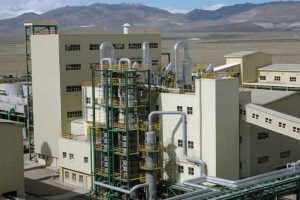
In the detergent industry, soda ash serves as a key ingredient in the manufacturing of laundry and household cleaning products.
Product of soda ash plays a significant role in detergent production, contributing to the effectiveness of cleaning products by enhancing their ability to remove dirt, grease, and stains from various surfaces.
One of the primary functions of soda ash in detergent manufacturing is as a pH regulator. It helps to adjust the pH of the detergent solution to an optimal level for cleaning. By maintaining the pH within a specific range, soda ash ensures that the detergent remains effective in breaking down and removing soils from fabrics and surfaces.
Additionally, soda ash acts as a water softener in detergent formulations. It helps to counteract the effects of hard water by binding with calcium and magnesium ions, which are responsible for water hardness.
This prevents the formation of insoluble mineral deposits and allows the detergent to lather more effectively, improving its cleaning performance.
Moreover, soda ash serves as a builder in detergent formulations, assisting in the removal of stubborn stains and enhancing the overall cleaning power of the product. It helps to increase the alkalinity of the detergent solution, which enhances the solubility of soils and improves soil suspension, preventing re-deposition onto cleaned surfaces.
Furthermore, soda ash aids in the saponification process, which is crucial for the formation of soap molecules in certain types of detergents. By reacting with fatty acids, soda ash helps to produce soap compounds that contribute to the emulsification and removal of grease and oil-based stains.
In summary, soda ash plays a multifaceted role in detergent production, serving as a pH regulator, water softener, builder, and facilitator of saponification. Its inclusion in detergent formulations enhances cleaning effectiveness and contributes to the removal of a wide range of soils, making it an indispensable ingredient in household and industrial cleaning products.
Chemical Industry
Our soda ash is utilized in various chemical processes, including the production of sodium bicarbonate, sodium silicate, and various other chemicals.
It is serves as a crucial precursor in the production of sodium bicarbonate (baking soda) and sodium silicate, two compounds with diverse industrial applications.
In the manufacturing of sodium bicarbonate, soda ash undergoes a chemical reaction with carbon dioxide and water to produce sodium bicarbonate, also known as baking soda. This reaction, known as the Solvay process, involves the conversion of sodium carbonate (soda ash) into sodium bicarbonate through the addition of carbon dioxide and ammonia.
Sodium bicarbonate is widely used in baking, pharmaceuticals, personal care products, and as a household cleaning agent due to its alkalinity and mild abrasive properties.
Similarly, soda ash is a key raw material in the production of sodium silicate, commonly known as water glass. Sodium silicate is formed through the fusion of soda ash with silica sand at high temperatures. This reaction produces a clear, viscous liquid with adhesive and binding properties.
Sodium silicate finds applications in a wide range of industries, including manufacturing detergents, adhesives, sealants, construction materials, and as a chemical binder in foundry molds.
In both cases, soda ash serves as a critical starting material, providing the necessary alkalinity and chemical properties for the production of sodium bicarbonate and sodium silicate. These compounds, in turn, have diverse industrial uses and contribute significantly to various sectors of the economy, including manufacturing, construction, and consumer goods.
Water Treatment
It is also employed in water treatment plants to adjust pH levels and soften water.
Soda ash plays a vital role in water treatment processes, where it is primarily used to adjust pH levels and soften water.
One of the key functions of soda ash in water treatment is as a pH regulator. By adding soda ash to water, the pH level can be raised, making the water less acidic and more alkaline. This adjustment is crucial for ensuring that water is within the desired pH range for various treatment processes, such as coagulation, flocculation, and disinfection.
Maintaining the proper pH level also helps to minimize corrosion in water distribution systems and ensure the effectiveness of treatment chemicals.
Additionally, soda ash is utilized as a water softener in water treatment plants. Hard water, which contains high levels of dissolved minerals such as calcium and magnesium, can lead to scaling and mineral buildup in pipes, fixtures, and appliances. By adding soda ash to hard water, the calcium and magnesium ions are precipitated out as insoluble compounds, reducing water hardness and preventing scale formation. This process, known as precipitation softening, helps to improve the quality of water for domestic, industrial, and agricultural purposes.
Moreover, soda ash is sometimes used in conjunction with other chemicals in processes such as coagulation and flocculation, where it helps to enhance the removal of suspended solids, turbidity, and organic matter from water.
Its alkalinity can aid in the destabilization of particles and the formation of larger, easier-to-remove flocs, resulting in clearer and cleaner water.
In summary, soda ash plays a crucial role in water treatment by serving as a pH regulator, water softener, and facilitator of treatment processes. Its ability to adjust pH levels, soften water, and improve the efficiency of other treatment chemicals makes it an essential component in ensuring the quality and safety of drinking water and wastewater treatment processes.
Environmental Impact
Despite its usefulness, soda ash production can have environmental consequences.
Effects on Water Bodies
Discharge of soda ash into water bodies can lead to increased alkalinity, which may harm aquatic ecosystems.
Air Pollution
The combustion of fossil fuels in soda ash production facilities can release pollutants such as sulfur dioxide (SO2) and nitrogen oxides (NOx) into the atmosphere.
Health and Safety Concerns
Exposure Risks
Workers involved in soda ash production may face risks of respiratory irritation and skin contact hazards.
Regulatory Measures
Stringent regulations and safety protocols are in place to minimize the health and environmental impacts of soda ash production.
Global Market Overview
The global soda ash market is influenced by factors such as industrial demand, economic conditions, and regulatory policies. Major producers include countries like the United States, China, and Turkey.
Future Trends in Soda Ash Industry
As industries strive for sustainability, there is growing interest in developing cleaner and more energy-efficient methods for soda ash production. Additionally, innovations in recycling and waste management may reshape the future of this industry.
Types of soda ash
Light and dense soda ash are two forms of sodium carbonate with distinct characteristics and applications.
Light Soda Ash:
Light soda ash, also known as soda ash light or dense ash, is produced through a refinement process that results in a finer particle size compared to dense soda ash. It typically has a bulk density ranging from 0.5 to 0.6 grams per cubic centimeter. Light soda ash is commonly used in industries where a finer particle size is preferred, such as in the manufacturing of detergents, chemicals, and certain types of glass.
Dense Soda Ash:
Dense soda ash, on the other hand, is produced with larger particle sizes and has a higher bulk density, typically ranging from 0.9 to 1.1 grams per cubic centimeter. This form of soda ash is often preferred in applications where the physical properties of the material are crucial, such as in the production of certain types of glass and chemicals.
Differences between Light and Dense Soda Ash:
- Particle Size: The primary difference between light and dense soda ash lies in their particle sizes. Light soda ash has a finer particle size, while dense soda ash has larger particles.
- Bulk Density: Light soda ash has a lower bulk density compared to dense soda ash. This difference in density affects the handling and transportation of the two forms.
- Applications: Light soda ash is commonly used in applications where a fine particle size is desired, such as in detergent manufacturing and certain chemical processes. Dense soda ash, with its larger particle size and higher density, is preferred in applications where physical properties are important, such as in the production of certain types of glass.
In summary, while both light and dense soda ash are forms of sodium carbonate, they differ in particle size, bulk density, and applications. Light soda ash is finer and lighter, suitable for specific industrial processes, while dense soda ash is coarser and denser, preferred for applications where physical properties are critical.
High dense soda ash is a strong alkaline with 11.6 PH level, which has multiple tasks in drilling mud and lots of other fields. This chemical according to it high PH mostly uses in drilling systems as the PH controller, reducing calcium and neutralizing the acids and in other word, it keeps the alkalinity of drilling fluid stable. Soda ash also known as sodium carbonate and has several grades for different applications which all of them are manufacturing by BASEKIM company and exporting all over the world.
Soda ash manufacturer in Turkey (sodium carbonate)
Are you looking for a reliable source of high-quality soda ash to enhance your manufacturing processes? Look no further! Our soda ash, manufactured in Turkey, is the perfect solution for your needs.
Here’s why our soda ash stands out:
- Exceptional Purity: Our soda ash is produced using state-of-the-art techniques, ensuring exceptional purity levels. This purity translates to superior performance and reliability in your manufacturing processes.
- Consistent Quality: We understand the importance of consistency in manufacturing. With our soda ash, you can expect uniform quality batch after batch, minimizing production disruptions and ensuring reliable results.
- Cost-Effective Solution: We offer competitive pricing without compromising on quality. By choosing our soda ash, you not only get top-notch product performance but also cost-effectiveness that adds value to your bottom line.
- Environmental Responsibility: Sustainability is at the core of our manufacturing process. Our soda ash is produced with minimal environmental impact, ensuring that you can meet your sustainability goals while enjoying superior product performance.
Partnering with us means gaining access to a trusted supplier who is committed to your success. Whether you’re in the detergent, glass, or chemical industry, our soda ash is versatile enough to meet your diverse needs.
Eti Soda
Eti Soda, located in Turkey, is renowned for its high-quality soda ash, a vital ingredient in various industries. With a commitment to excellence, Eti Soda ensures purity, consistency, and cost-effectiveness in every batch, making it the ideal choice for manufacturers worldwide. Elevate your manufacturing processes with Eti Soda’s premium soda ash today!
Sisecam
Sisecam, a leading glass manufacturer based in Turkey, produces top-quality soda ash that meets the highest industry standards. Sisecam soda ash is known for its exceptional purity and consistency, making it a preferred choice for glassmakers and other manufacturing sectors globally. Elevate your production processes with Sisecam’s premium soda ash and experience unparalleled performance and reliability.
Kazan Soda – We soda
Kazan Soda, under the brand “We Soda,” is a premier soda ash manufacturer based in Turkey. With a focus on innovation and sustainability, Kazan Soda delivers high-quality soda ash that meets the diverse needs of industries such as glass, detergents, and chemicals. Choose Kazan Soda (We Soda) for superior purity, consistency, and environmental responsibility in your manufacturing processes. Elevate your products with We Soda exceptional soda ash today!
Brenntag
Brenntag offers top-notch soda ash, sourced from reputable manufacturers, to meet your industrial needs. Our soda ash is known for its exceptional quality, purity, and consistency, making it an excellent choice for various applications including glass manufacturing, detergents, and water treatment. Partner with Brenntag for reliable supply and superior product performance. Elevate your processes with Brenntag’s premium soda ash today.
Solvay
Solvay is a trusted name in the chemical industry, renowned for its high-quality soda ash. Our soda ash is produced using advanced technologies and processes, ensuring exceptional purity and consistency. Whether you’re in the glass, detergents, or chemicals sector, Solvay soda ash is the perfect choice for your manufacturing needs. Elevate your production processes with Solvay premium soda ash and experience superior performance and reliability.
Basekim
Basekim soda ash is a company that specializes in the production and distribution of soda ash, also known as sodium carbonate. They are known for their high-quality products and commitment to sustainability in their manufacturing processes. Basekim Soda Ash plays a significant role in various industries, including glass manufacturing, detergent production, and water treatment, by providing a reliable source of soda ash for these applications.
Sodium Carbonate
Our Soda ash, addition to drilling, has noticeable applications in wide rang. This chemical with general formula Na2CO3 commonly combines with calcium carbonate and sand, then after some processes glass is manufacturing and this is one the main application of this important chemical. Sodium carbonate also uses in food industries and causes to raise the durability of the foods or some other usages in ice cream making. Sodium carbonate also uses for softening the clothes and is the one of the basic chemicals to making detergents and bleaches.
Soda ash environment friendly chemical
Soda ash is completely compatible with environment and has no bad effect on our environment. Sodium carbonate also is a non flammable inorganic composition somehow that the shipment of this chemical is easy and safe, however it shouldn’t be breath or touch straightly and may causes some hurt to the body therefor it packs in some moisture proof bags. Also it is the good conductor in electrolysis by melting point about 850 centigrade degrees are good properties to use sodium carbonate in different industries.
Soda ash or sodium carbonate grades and purity
Soda ash has several grades for different usages which all of them are supporting by our company in heavy or light types. Sodium carbonate is soluble in the water and specific gravity about 2.5 has lots of applications in industries like color making, paper making, soap and detergents, silk manufacturing, oil and drilling industries, block making, toothpaste making, leathers, and also is a substance for some other chemicals like sodium bicarbonate, sodium silicate, sodium dichromate and etc.
Soda ash or sodium carbonate grades and purity
Soda ash, according to it wide application is one of the basic production of BASEKIM company in every different grades and the purity until 99% with the best price and the best quality and ready to export to every spot on the world. Sodium carbonate also has high water attraction and must be kept in moisture proof packing’s in bulk type or small bags with different densities and other specifications. sodium carbonate is common in water refinery or using in water drums to keep them clean.
Frequently Asked Questions (FAQs)
- What is sodium carbonate, and what is it used for? Sodium carbonate, also known as soda ash, is a chemical compound widely used in various industries. It is utilized in glass manufacturing, detergents, papermaking, textiles, metallurgy, water treatment, and more.
- Is sodium carbonate safe to use? Sodium carbonate is generally safe when handled properly. However, it can irritate the skin, eyes, and respiratory system if contact or inhalation occurs. It’s essential to follow safety precautions when working with this compound.
- How is sodium carbonate different from baking soda (sodium bicarbonate)? While both sodium carbonate and baking soda are alkaline compounds, they have different chemical compositions and properties. Sodium carbonate (Na2CO3) is stronger and more alkaline compared to baking soda (NaHCO3).
- Can sodium carbonate be used in food preparation? Sodium carbonate is not typically used in food preparation due to its strong alkalinity and potential health risks. Baking soda (sodium bicarbonate) is commonly used in cooking and baking as a leavening agent.
- How is sodium carbonate disposed of safely? Disposal of sodium carbonate should be done following local regulations. It can often be neutralized with an acid before disposal in wastewater systems or landfills. It’s essential to handle and dispose of sodium carbonate responsibly to minimize environmental impact.
- Where can sodium carbonate be purchased? Sodium carbonate is available for purchase from chemical suppliers, industrial supply stores, and online retailers. It is commonly sold in the form of a white powder or granules.
- What are the environmental impacts of sodium carbonate production and usage? While sodium carbonate itself is not considered harmful to the environment, its production processes and usage can have environmental implications, including energy consumption and greenhouse gas emissions. Efforts are made to minimize these impacts through sustainable practices and regulatory compliance.
- What are some household uses for sodium carbonate? Sodium carbonate has various household uses, including cleaning surfaces, removing stains from fabrics, and unclogging drains. Its alkaline properties make it effective for tackling grease, grime, and mineral deposits.
- Can sodium carbonate be used to adjust pH levels in swimming pools? Yes, sodium carbonate is commonly used in swimming pools to raise pH levels and alkalinity, ensuring proper water balance and preventing corrosion of pool equipment and surfaces.
- Are there any alternatives to sodium carbonate for specific applications? Depending on the application, alternatives to sodium carbonate may include sodium bicarbonate (baking soda), sodium hydroxide (caustic soda), or other alkaline compounds. The choice of alternative will depend on factors such as cost, availability, and desired properties.
- What are the health hazards associated with sodium carbonate exposure? Exposure to sodium carbonate can cause irritation to the skin, eyes, and respiratory system. Ingestion or inhalation of large amounts may lead to nausea, vomiting, and respiratory distress. It’s crucial to handle sodium carbonate with care and follow safety guidelines to prevent accidents.
- How is sodium carbonate used in water treatment? Sodium carbonate is employed in water treatment facilities to adjust pH levels and alkalinity. It helps neutralize acidic water, making it suitable for various industrial and municipal applications. Additionally, sodium carbonate can precipitate calcium and magnesium ions, reducing water hardness.
- Can sodium carbonate be used in personal care products? Yes, sodium carbonate is sometimes used in personal care products such as toothpaste and mouthwash for its cleaning and alkalizing properties. However, its use in such products is limited due to its potential abrasiveness and alkalinity.
- What are the storage requirements for sodium carbonate? Sodium carbonate should be stored in a cool, dry place away from moisture and incompatible materials. Containers should be tightly sealed to prevent contamination and exposure to air. Additionally, storage areas should be well-ventilated to prevent the accumulation of dust and fumes.
- How does sodium carbonate contribute to environmental sustainability? Sodium carbonate plays a role in environmental sustainability through its use in processes such as water treatment and pollution control. By neutralizing acidity and removing impurities from water, sodium carbonate helps improve water quality and protect aquatic ecosystems. Additionally, its use in industrial applications can reduce the need for harsher chemicals, leading to less environmental impact overall.
- What role does sodium carbonate play in the textile industry? In the textile industry, sodium carbonate is used in various processes such as dyeing and printing. It helps fix dyes to fabrics, ensuring colorfastness and vibrant colors. Additionally, sodium carbonate is used in fabric finishing to adjust pH levels, resulting in softer and more durable textiles.
- Are there any regulations governing the use of sodium carbonate? Yes, regulatory agencies such as the Environmental Protection Agency (EPA) and Occupational Safety and Health Administration (OSHA) have guidelines and regulations in place to ensure the safe handling, storage, and disposal of sodium carbonate. Compliance with these regulations is essential to minimize risks to human health and the environment.
- What are some emerging applications for sodium carbonate? Researchers are exploring new applications for sodium carbonate, including its use in carbon capture and storage technologies. By reacting with carbon dioxide, sodium carbonate can potentially help mitigate greenhouse gas emissions and combat climate change. Additionally, there is ongoing research into using sodium carbonate as a raw material for the production of specialty chemicals.
- How does sodium carbonate compare to other alkaline compounds? Sodium carbonate is often compared to other alkaline compounds such as sodium bicarbonate (baking soda) and sodium hydroxide (caustic soda). While all three compounds are alkaline, they differ in their chemical compositions and properties, making them suitable for different applications. Sodium carbonate, for example, is less caustic than sodium hydroxide and is commonly used in applications where a milder alkaline is required.
- What are the economic implications of sodium carbonate usage? The widespread use of sodium carbonate in various industries has significant economic implications. Its availability and affordability make it a cost-effective solution for processes such as glass manufacturing, detergents, and water treatment. Moreover, its versatility and performance contribute to the efficiency and competitiveness of many industrial operations.
Soda ash light
Download specification of Soda ash light
Soda ash dense
Download specification of Soda ash dense
MSDS
Download MSDS of Soda ash dense and light
Contact Info
Turkey office:No.6 of Fahrettin Pasa Sokak , Galip Erdem steet, Ilkbahar Mah. Turan Gunes Ave. Çankaya Ankara
Phone: 00903125147055
Dubai office: 3509 of the Burligton tower, business bay, dubai-uae
Phone:0097142369830
E-Mail: [email protected]
